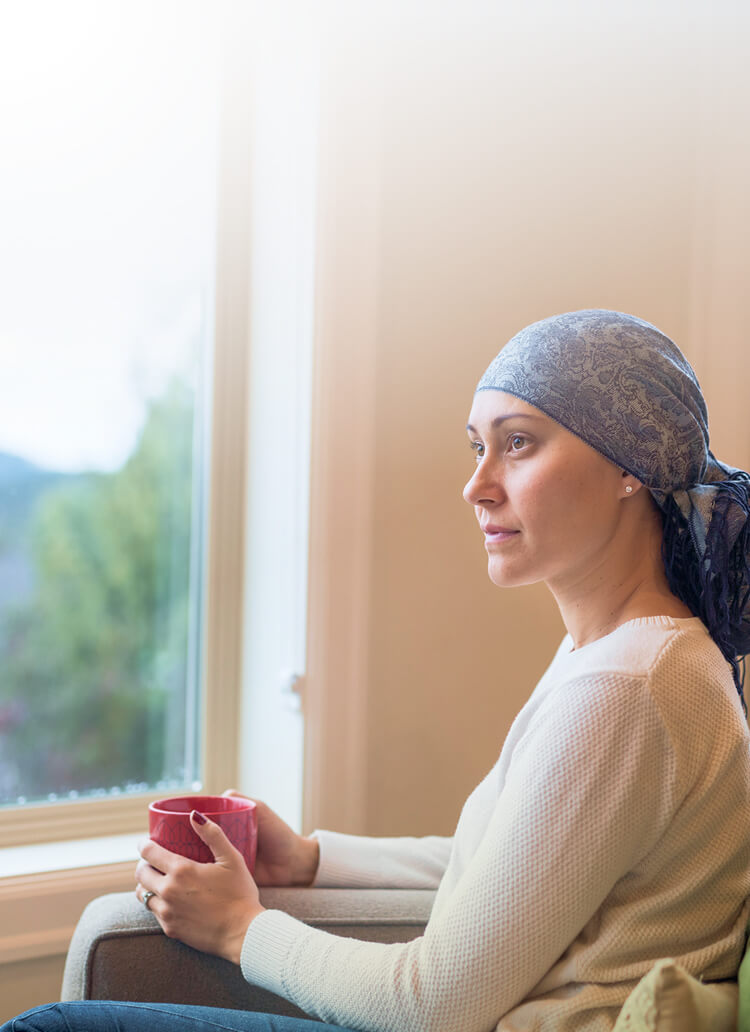Your local home for world-class fertility care
Our boutique fertility clinic is located in northeast Louisville, Kentucky, convenient to Bardstown, Bowling Green, Lexington, Owensboro, Richmond, and Southern Indiana.

Each year, thousands of individuals are diagnosed with cancer during their childbearing years. While modern medicine gives young adults a better chance at long-term survival than ever before, treatments such as chemotherapy, radiation, and surgery can impact fertility.
At Kentucky Fertility Institute (KFI), we understand that navigating a cancer diagnosis can be overwhelming. We aim to give you peace of mind with our fertility preservation options to help ensure that cancer doesn’t threaten your ability to have a family. Whether you are considering banking sperm, eggs, or embryos, once your cancer treatments are completed and you are ready to pursue fertility, we’ll be able to use your cryopreserved (frozen) tissues to help give you the best chance of success.
The Sharing Hope Program was created by the LIVESTRONG Foundation to provide educational, moral, and financial support to patients undergoing cancer treatments. Our partnership with LIVESTRONG allows us to offer discounted services and free medications to qualifying patients for oncofertility care.
Sperm cryopreservation (freezing) is ideally done before medical treatment begins. Semen samples are typically produced through masturbation in a private collection room. Arrangements can also be made to collect samples at home. For males who do not have sperm in their ejaculate—due either to an obstruction or testicular dysfunction—surgical sperm retrieval can be considered. Once collected, the sperm is assessed, processed, frozen, and stored in KFI’s state-of-the-art laboratory for future use through IUI or IVF.
Oocyte cryopreservation (egg freezing) is one of the most effective options for fertility preservation in young women and should ideally be performed before cancer treatments have started. The process takes about two weeks to complete and is similar to the first half of an in vitro fertilization (IVF) cycle. Following an egg retrieval procedure, unfertilized eggs are cryopreserved through a process called vitrification and stored until your cancer treatments are completed and you are ready to become pregnant.
Embryo cryopreservation (freezing) involves harvesting a woman’s eggs and fertilizing the eggs with sperm from a partner or donor in the laboratory to produce embryos for future use. This process takes about two weeks and is similar to the first half of an in vitro fertilization (IVF) cycle. The resulting embryos are stored until you are in complete remission and ready to become pregnant. Preimplantation genetic testing (PGT) can be used to screen for genetic risk factors and ensure that healthy embryos are available for future use.
The answer depends on various factors, including the type of cancer, type of treatment that is planned, and your age at the time of treatment. Some cancers that are common in women of reproductive age have a high risk of affecting fertility, such as breast cancer and leukemia. Not all cancer therapies will threaten fertility, so it’s best to discuss your concerns and goals with your oncologist and a reproductive specialist to make sure you fully understand all of your options.
Patients often have concerns about the costs and timing of fertility care before beginning cancer treatment. We offer expedited appointments for our oncofertility patients and are committed to minimizing the time required for consultation, testing, and treatments in our office to help return you to your oncology care as quickly as possible.
At KFI, our financial counselors are available to assist you in determining whether insurance coverage is available and help plan for any out-of-pocket expenses that you may incur. Additionally, we’ve partnered with the Sharing Hope Program from LIVESTRONG, which allows us to provide discounted services and free medications for qualifying patients undergoing oncofertility care.
After cancer therapies are completed, the timing of when to pursue pregnancy can vary. This is a complex decision that needs to be made with input from a patient’s oncology team. We will work with you and your oncologist to find the right time to resume fertility care, or can also help you to use a gestational carrier if that would be a preferred (safer and faster) option.
Navigating cancer and fertility is challenging, but you aren’t alone. The expert team at Kentucky Fertility Institute is here to support you through each step of the process and help preserve your fertility for years to come. Contact us today for more information or to schedule an appointment.
Our boutique fertility clinic is located in northeast Louisville, Kentucky, convenient to Bardstown, Bowling Green, Lexington, Owensboro, Richmond, and Southern Indiana.


